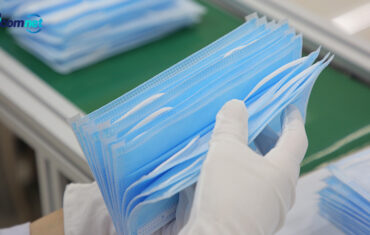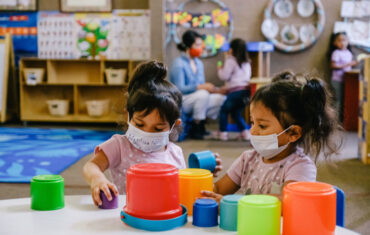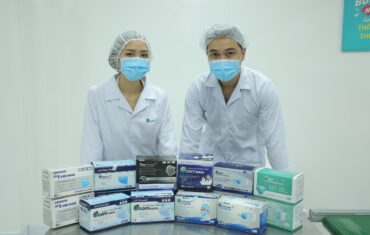During coronavirus, many people worldwide produce face mask to help with the pandemic and shortage of PPE. These skills are appreciated, but should not be marketed for babies and infants to wear. Face mask may pose more harm in terms of safety for children under the age of 2 years old.
Why Are Cloth Masks Being Recommended?
To help slow the spread of the virus in public settings. Some people do not have any symptoms but can still transmit the virus to others.
What Are the Different Kinds of Masks?
- Cloth face masks can be made at home from common materials. They may help prevent spread of infection by acting as a barrier for when the wearer sneezes, coughs or speaks.
- Surgical, or disposable face masks help prevent infection. You may see these being provided by health care organizations for employees or visitors.
- N95 masks should be reserved for healthcare workers. N95 face mask protect the wearer against small particles that are considered airborne. Many healthcare professionals are required to have special testing and training to ensure these fit properly for optimal protection.
Why Shouldn’t My Infant Use a Mask?
Baby’s airways are smaller, so breathing through a face mask is even harder on them. Using a mask on an infant may increase the risk of suffocation. Masks are harder to breathe through. A snug fit will give them less access to air, and a loose fit will not provide much protection. If they are having are hard time breathing, infants are unable to take the mask off themselves and could suffocate.
How Can I Protect My Infant?
- Limit exposure and avoid unnecessary public contact.
- If going out is essential, cover the infant carrier with a blanket, which helps protect the baby, but still gives them the ability to breathe comfortably. Do not leave the blanket on the carrier in the car or at any time when the baby and carrier are not in direct view. Remember cover your face by face mask.
- Keep hands clean. Frequent hand washing with soap and water for 20 seconds is optimal, but hand sanitizer, with at least 60% alcohol is the next best substitute.
- Clean frequently-touched surfaces such as doorknobs, handles, light switches and electronics often.
- Teach older children to avoid touching their faces.
- If a parent cannot leave the young infant at home and is pressed to go into the public, keep the outing short and always follow the 6 feet distancing rule. And parent have to wear face mask
- Remember to always wash your hands as soon as you return home.
- If you’re going to meet family or friends, politely request that if someone is sick, they stay home to avoid getting others sick. And for an added layer of safety, make sure that anyone who is old enough to wear face mask when they’re around your child.
Your little one means the world to you. Of course their safety is your top priority. You do what you can to protect your child from the unknowns, but the arrival of COVID-19 has made things a little more uncertain. Now, you have to take extra precautions to keep your child happy, safe and healthy.






